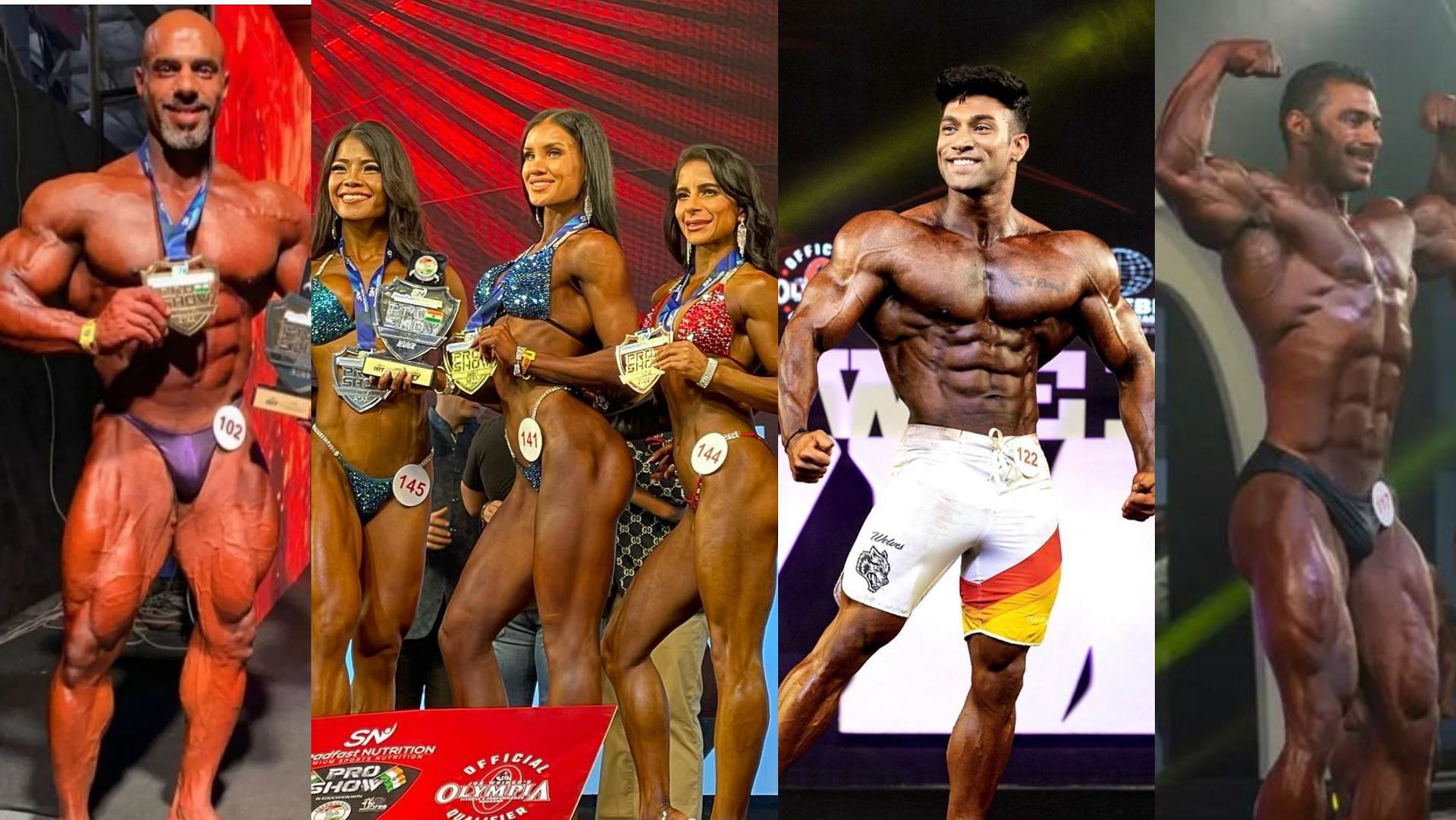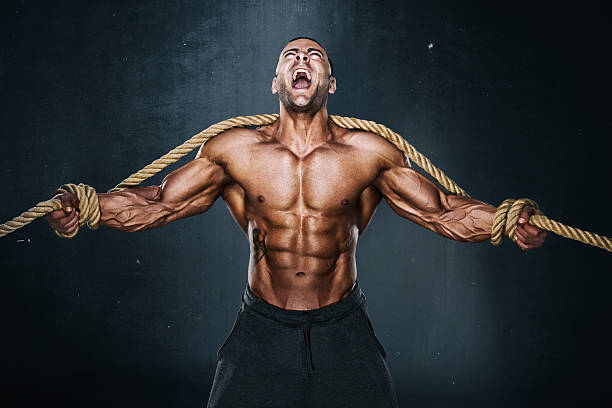Bodybuilding is an art form, not just a sport or a pastime. Discipline, determination, and hard effort are required to build the body of your dreams.
This blog will take you through the history of bodybuilding and its myriad physical and mental health advantages. We will assist you in defining attainable goals and will provide training techniques to assist you in achieving them. Nutrition is essential in bodybuilding, so we’ll cover everything from macro and micronutrients to supplemental options.
Brief History of Bodybuilding
Bodybuilding, or the practise of growing muscle through resistance training, has a long and varied history.
In ancient Greece, athletes trained and competed in sports such as discus throwing and wrestling, and a muscular physique was considered as a symbol of strength and vitality. However, the concept of bodybuilding as a competitive sport did not arise until the late 1800s.
Eugen Sandow, a German-born bodybuilder known for his muscular physique and theatrical performances, was a pioneer of modern bodybuilding. Sandow held the first-ever bodybuilding competition in 1891, which was universally regarded as a success and helped to popularise the sport.
Bodybuilding was still popular in the early twentieth century, with celebrities like Charles Atlas and Joe Weider promoting the benefits of weightlifting and muscular growth. By the 1950s and 1960s, bodybuilding had become a well-established sport, with the establishment of organisations such as the International Federation of Bodybuilding and Fitness (IFBB) and the Mr. Olympia competition, which is now regarded as one of the world’s most prominent bodybuilding competitions.
Bodybuilding has developed in terms of training methods, nourishment, and performance-enhancing substances over the years. However, the fundamental principles of weightlifting and muscular growth remain at the heart of the sport, and bodybuilding continues to excite and challenge athletes worldwide.

Benefits of Bodybuilding
Physical benefits
Maintaining an active lifestyle is essential for general physical health, and bodybuilding is an excellent way to do it.
Bodybuilding can help you gain muscle mass, strength, and endurance while also losing weight and lowering your risk of chronic conditions like diabetes and heart disease. Regular bodybuilding activity enhances bone density, joint health, and metabolism, helping you to burn more calories even when at rest.
Furthermore, bodybuilding can lower tension and anxiety, resulting in a better mental condition overall.
Bodybuilding is a wonderful approach to improve both your mind and body when these physical benefits are considered.
Mental benefits
Achieving a fit and muscular body isn’t the only benefit of bodybuilding; it can also have significant mental advantages. By reducing stress and anxiety levels, regular exercise through bodybuilding can improve overall mental health. Moreover, it promotes feelings of self-confidence, discipline, and self-esteem, which can translate into other aspects of life such as work or relationships. The sense of accomplishment derived from setting achievable goals in bodybuilding can also provide motivation, while regular exercise releases endorphins that boost mood and overall well-being.
Setting Goals in Bodybuilding
To be successful in bodybuilding, you must create definite and attainable goals. These should be measurable so you can track your progress and motivate yourself as you get closer to your goals. A reasonable timetable should also be created in order to hold yourself accountable and on track.
Creating a training and diet plan that corresponds with your goals is critical, as is routinely checking your progress and making adjustments as needed. Celebrating milestones along the way can keep you motivated and committed to achieving your bodybuilding goals.
Importance of setting goals
Setting objectives is essential in bodybuilding because it keeps you motivated and on track to achieve your desired outcomes. You can build a training plan and nutrition programme that corresponds with your aims by identifying specific and measurable targets, such as growing muscle mass or reducing body fat. Having specific goals can assist you in tracking your progress, making appropriate changes to your exercise or nutrition, and staying accountable throughout the trip. Remember to appreciate minor accomplishments along the road to stay inspired and committed to your long-term goals.
Training Techniques for Bodybuilding
Bodybuilding is a sport that combines resistance training and high-intensity workouts to increase muscular mass and strength. To maximise muscle growth and obtain the desired results, a variety of training approaches can be applied.
Here are some of the most effective training techniques for bodybuilding:
- Progressive Overload: This technique involves gradually increasing the weight lifted over time to continually challenge the muscles. By increasing the resistance, the muscles are forced to adapt and grow stronger.
- Compound Exercises: Compound exercises involve multiple muscle groups and joints working together. Examples include the squat, bench press, and deadlift. These exercises allow for heavier weights to be lifted, stimulating greater muscle growth.
- Isolation Exercises: Isolation exercises target a specific muscle group, such as bicep curls or tricep extensions. These exercises help to develop specific muscles and improve definition.
- Supersets: Supersets involve performing two exercises back-to-back without rest. This technique increases the intensity of the workout, causing more muscle fibers to be recruited.
- Drop Sets: Drop sets involve reducing the weight after a set to continue the exercise. This technique is used to achieve muscle fatigue and promote muscle growth.
- Rest-Pause: Rest-pause involves performing a set to failure, resting for a few seconds, and then continuing the set until failure again. This technique is used to push the muscles to their limit and stimulate growth.
- Pyramids: Pyramid sets involve starting with a light weight and gradually increasing the weight with each set until reaching a heavy weight. This technique is used to warm up the muscles and gradually increase the intensity of the workout.
- Periodization: Periodization involves dividing the training into different phases, each with a specific focus, such as strength, hypertrophy, or endurance. This technique is used to prevent plateaus and keep the muscles challenged.
When it comes to bodybuilding, it’s critical to try out numerous training methods to see what works best for you. You may maximise muscular growth, strength, and overall fitness by adding these approaches into your workout regimen.

Proper Nutrition for Bodybuilding
Macro and micronutrients for muscle growth
A well-balanced diet rich in macronutrients and micronutrients is essential for bodybuilding muscle growth.
Macronutrients such as protein, carbohydrates, and fats provide energy and aid in muscle growth, whereas micronutrients such as vitamins and minerals aid in muscle recovery and overall health.
It is vital to consume the right amount of macro and micronutrients to maximise muscle growth and function. A nutritionist or trained dietitian can help you create a customised nutrition plan for your bodybuilding goals.
Supplementation for Bodybuilding
Including vitamins in your bodybuilding routine can help accelerate your results. Protein supplements can help you achieve your daily protein requirements, while creatine can help you boost your muscle strength and endurance during workouts. Pre-workout supplements can enhance energy and focus while BCAAs help reduce muscle breakdown and promote recovery. Post-workout vitamins aid in muscle regeneration by replenishing depleted nutrients. Before incorporating supplements into your bodybuilding routine, you must first understand the many types of supplements available, as well as their efficacy and safety.
Avoiding Common Mistakes in Bodybuilding
Overtraining
Bodybuilders must train hard and consistently to make development, but they must also avoid overtraining. Overtraining can result in weariness, poor performance, and even injury. Overtraining symptoms include muscle discomfort, difficulties sleeping, and a decrease in appetite. Including rest days in your training schedule allows your muscles to recover and strengthen, allowing you to return to the gym stronger than before. To avoid overtraining, remember to listen to your body and alter your routines accordingly.
Poor form and technique
In bodybuilding, proper form and technique are critical for maximising muscular activation while minimising the risk of damage. In fact, poor form and posture during exercises can cause long-term joint and muscle injury. It is crucial to maintain good form throughout each exercise, beginning with lesser weights and gradually increasing weight as your technique improves. Consider employing a personal trainer or coach to assist you in identifying and correcting any flaws with your form, ensuring you get the most out of each session.
Rest and Recovery for Bodybuilding
Rest and recovery are essential components of bodybuilding. Muscles need time to repair and grow after intense training sessions. Overtraining can lead to injury, burnout, and hinder progress. Adequate rest, hydration, and nutrition are vital for muscle recovery and preventing injury. Incorporating active recovery techniques such as stretching or low-intensity cardio can enhance circulation and aid in muscle repair. Prioritizing rest days in your training schedule is crucial to avoid overtraining and maximize progress. Remember that a balanced approach to bodybuilding includes proper rest and recovery alongside challenging workouts.
Preparing for Competitions
Preparing for competitions requires discipline, dedication, and a well-planned strategy. A strict training routine focusing on building muscle mass, increasing strength, and improving conditioning is crucial. Following a balanced nutrition plan that fuels the body for intense workouts and recovery is also essential. Seeking guidance from experienced trainers and coaches can help fine-tune form and technique, while taking time to rest and recover properly can prevent injuries and burnout. Additionally, learning how to pose and present oneself on stage is crucial to showcase hard work and dedication.
Let’s Sum Up
To be a successful bodybuilder, you must have patience, determination, and discipline. Bodybuilding provides numerous physical and emotional benefits, making it an excellent choice for people of all ages and genders.
Set reasonable goals, follow an adequate training plan, consume a balanced diet, take supplements as directed, avoid common errors, and prioritise rest and recovery.
To stay motivated during your bodybuilding journey, look for sources of motivation within yourself and around you. If you want to compete in bodybuilding, you must emotionally and physically prepare yourself by changing your training and nutrition.



